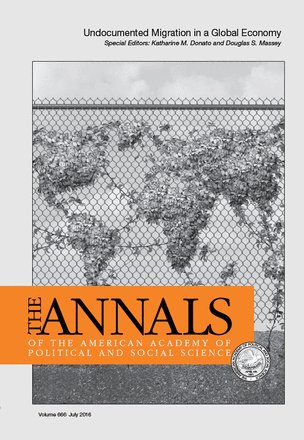This volume illustrates that the laws, political narratives, and institutional social structures related to global migration in the early twenty-first century similarly affect the lives of international migrants, whether they originate in nations from which many immigrants seek economic opportunity; or in countries from which many leave to find refuge from conflict, environmental degradation, or other conditions. The studies in this volume also suggest that the paradox of twenty-first-century globalization, which created the new phenomenon of illegal migration, has also helped to create inequality among immigrants around the globe. Undocumented immigrants worldwide live and work at a considerable disadvantage, and when compounded by other characteristics, their disadvantage can only worsen the prospects for successful integration in new destinations. If the scale of future international migration grows as more find themselves in nations and communities that are untenable because of rising civil violence or environmental degradation, then the legal status disparities observed here are certain to widen. The mass exodus from the Middle East into Europe that made headlines in the summer of 2015 is likely a harbinger of things to come.
Undocumented Migration in a Global Economy
The American Academy of Political and Social Science
PO Box 30732
Philadelphia, PA 19104
(215) 746-6500
Updates
Support Us
Knowledge that informs society. Research for stronger policy.
Copyright © 2025 - The American Academy of Political and Social Science

